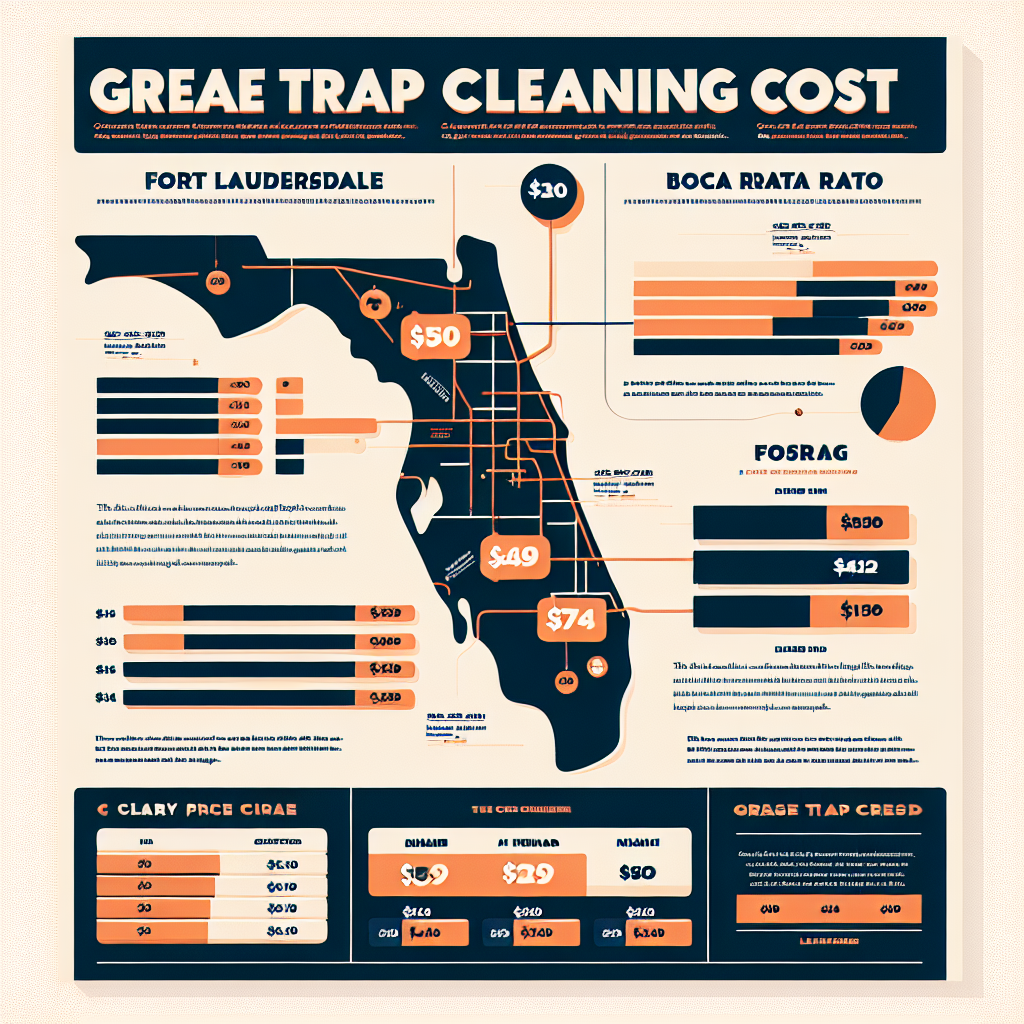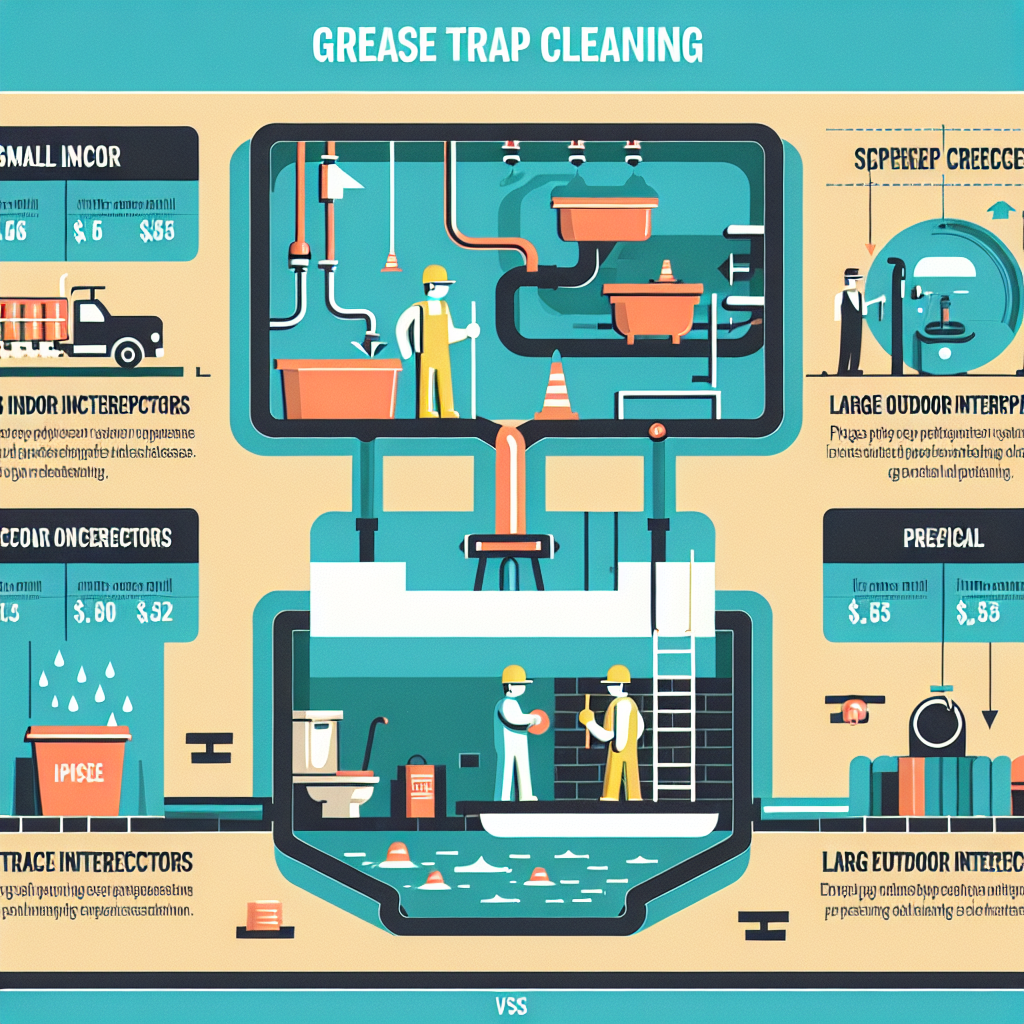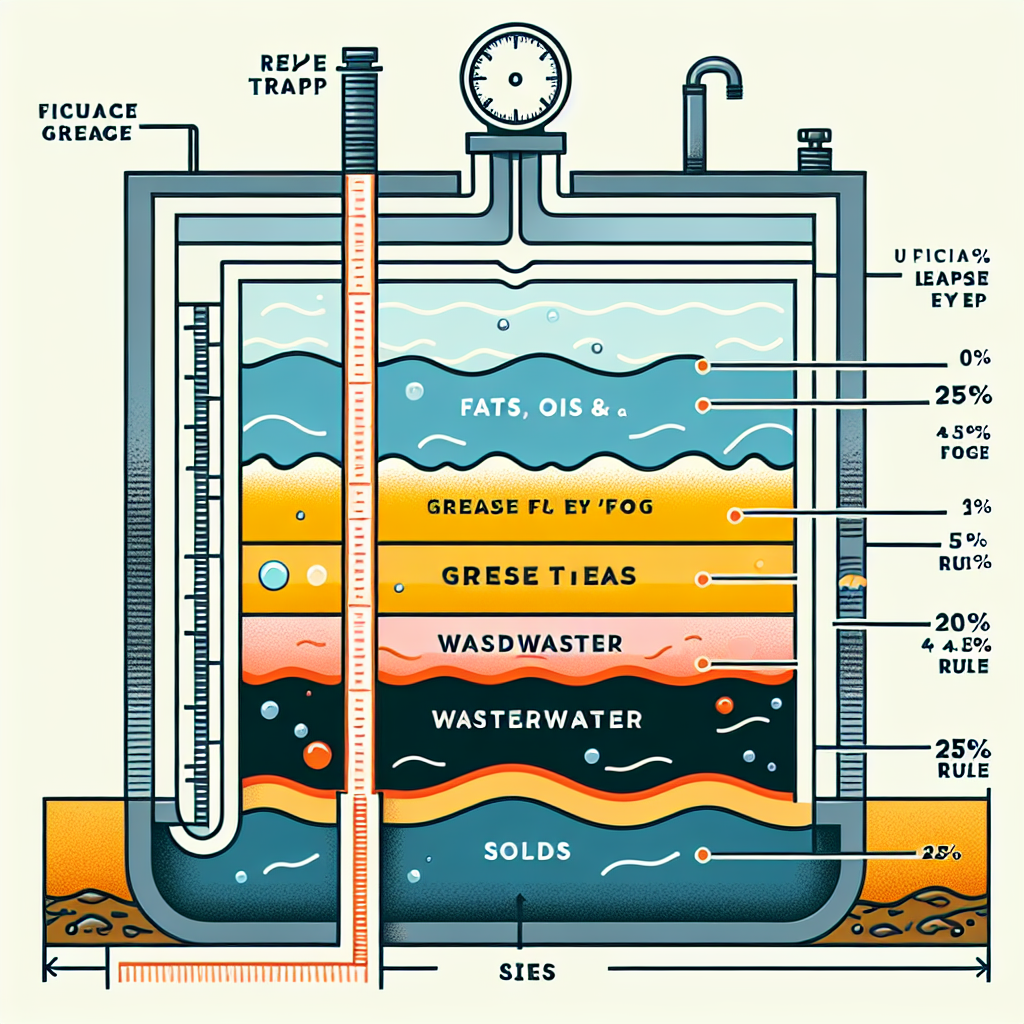Miami-Dade Grease Trap Regulations: Complete Compliance Guide
Complete guide to miami-dade grease trap regulations: complete compliance guide for South Florida restaurants.
We Handle Everything For You
We handle all the sourcing, negotiations, and logistics to find you the best grease trap service provider at the cheapest cost in your area.
Miami-Dade Grease Trap Regulations: Complete Compliance Guide
Miami-Dade Grease Trap Regulations: Complete Compliance Guide
Understanding and adhering to Miami-Dade grease trap regulations is crucial for restaurant owners to avoid hefty fines and ensure smooth operations. This guide provides a comprehensive overview of the requirements, permits, and best practices for compliance in Miami.
Understanding Miami-Dade Grease Trap Requirements
Who Needs Grease Traps in Miami-Dade?
In Miami-Dade, all food service establishments that produce fats, oils, and grease (FOG) are required to install grease traps. This includes restaurants, cafes, and any facility with a commercial kitchen.
GDO Permit Requirements
The Grease Discharge Operating (GDO) permit is mandatory for businesses that discharge grease into the sewer system. This permit ensures that establishments comply with local environmental standards.
DERM Enforcement Procedures
The Department of Environmental Resources Management (DERM) oversees the enforcement of grease trap regulations. They conduct regular inspections to ensure compliance with local ordinances.
Local Ordinance Compliance
Compliance with local ordinances involves adhering to specific installation, maintenance, and record-keeping practices as outlined by Miami-Dade County regulations.
Grease Discharge Operating (GDO) Permits
Permit Application Process
To apply for a GDO permit, businesses must submit detailed plans of their grease management system, including trap size and maintenance schedules.
Required Documentation
Documentation required includes proof of regular maintenance, waste disposal records, and a detailed description of the grease trap system.
Permit Renewal Procedures
GDO permits must be renewed annually, requiring updated documentation and compliance verification.
Permit Transfer Requirements
If a business changes ownership, the new owner must apply to transfer the GDO permit to ensure continued compliance.
Grease Trap Installation Requirements
Florida Building Code Compliance
Grease trap installations must comply with the Florida Building Code, which specifies design and construction standards.
DERM Approval Process
Before installation, plans must be submitted to DERM for approval to ensure they meet all regulatory requirements.
Installation Specifications
Grease traps must be installed according to specific size and capacity guidelines to handle the volume of FOG produced.
Inspection Requirements
Post-installation, a DERM inspection is required to verify compliance with all specifications and regulations.
Cleaning and Maintenance Requirements
90-Day Minimum Cleaning Schedule
Miami-Dade requires grease traps to be cleaned at least every 90 days to prevent blockages and environmental hazards.
25% Capacity Rule
Grease traps must be cleaned when they reach 25% of their capacity to ensure efficient operation and prevent overflows.
Professional Service Requirements
Cleaning must be conducted by licensed professionals who provide documentation of service for compliance records.
Maintenance Documentation
Businesses must maintain detailed records of all cleaning and maintenance activities for inspection purposes.
Record Keeping and Reporting
Required Documentation
Documentation includes cleaning logs, waste disposal receipts, and maintenance records, which must be readily available for inspections.
DERM Online Reporting System
Businesses can use the DERM online system to report maintenance activities and ensure timely compliance.
Record Retention Requirements
Records must be kept for a minimum of three years and be accessible during inspections.
Inspection Preparation
Regular reviews of documentation and maintenance schedules help prepare for unexpected DERM inspections.
DERM Inspections and Enforcement
Inspection Procedures
DERM conducts both scheduled and unscheduled inspections to ensure compliance with grease trap regulations.
Common Violations
Common violations include inadequate cleaning frequency, improper documentation, and non-compliance with capacity rules.
Penalty Structures
Fines for non-compliance can reach up to $5,000, with potential business closures for severe violations.
Appeal Processes
Businesses can appeal fines or enforcement actions by providing evidence of compliance or corrective measures.
Penalties and Fines
Violation Categories
Violations are categorized based on severity, ranging from minor documentation errors to major environmental breaches.
Fine Amounts
Fines vary based on the violation, with maximum penalties reaching $5,000 for serious infractions.
Business Closure Procedures
In extreme cases, businesses may face temporary closures until compliance is restored.
Compliance Restoration
To restore compliance, businesses must rectify violations, update documentation, and pass a follow-up inspection.
Compliance Best Practices
Regular Maintenance Schedules
Adhering to a strict maintenance schedule helps prevent violations and ensures efficient grease trap operation.
Staff Training Programs
Training staff on proper FOG disposal and maintenance practices is essential for ongoing compliance.
Documentation Management
Implementing a robust system for managing and storing compliance documentation is crucial for inspection readiness.
Professional Service Selection
Choosing reputable service providers ensures high-quality maintenance and compliance with local regulations.
Common Compliance Mistakes
Inadequate Record Keeping
Failing to maintain accurate records can lead to compliance issues and fines.
Insufficient Cleaning Frequency
Neglecting regular cleaning schedules can result in grease trap overflows and environmental hazards.
Improper Waste Disposal
Improper disposal of grease waste can lead to severe penalties and environmental damage.
Permit Violations
Operating without a valid GDO permit or failing to renew permits on time are common compliance pitfalls.
Getting Help with Compliance
DERM Resources and Contacts
DERM offers resources and contact information for businesses needing assistance with compliance.
Professional Compliance Services
Hiring professional services can help manage compliance tasks and ensure adherence to regulations.
Industry Associations
Joining industry associations provides access to resources and networking opportunities for compliance support.
Legal Considerations
Consulting with legal experts can help navigate complex regulatory requirements and avoid potential legal issues.
FAQs
What are Miami-Dade grease trap regulations?
Miami-Dade regulations require food service establishments to install and maintain grease traps to manage FOG waste, comply with GDO permits, and adhere to DERM guidelines.
How often should Miami grease traps be cleaned?
Grease traps in Miami should be cleaned at least every 90 days or when they reach 25% capacity, whichever comes first.
What are the penalties for non-compliance?
Penalties can include fines up to $5,000, temporary business closures, and mandatory corrective actions.
How do I apply for a GDO permit?
Applications for a GDO permit require submission of detailed plans and documentation to DERM, followed by an approval process.
What documentation is required for compliance?
Required documentation includes cleaning logs, waste disposal receipts, and maintenance records, which must be retained for at least three years.
Who enforces grease trap regulations in Miami-Dade?
The Department of Environmental Resources Management (DERM) is responsible for enforcing grease trap regulations in Miami-Dade.
Conclusion
Staying compliant with Miami-Dade grease trap regulations is essential for any food service business. By understanding the requirements, maintaining proper documentation, and adhering to regular maintenance schedules, you can avoid costly penalties and ensure smooth operations. For further assistance, consider consulting with professional compliance services or reaching out to DERM for guidance.
Related Grease Trap Resources



Need Professional Help?
Get expert grease trap services with transparent pricing and same-day availability.
Get Free Quote